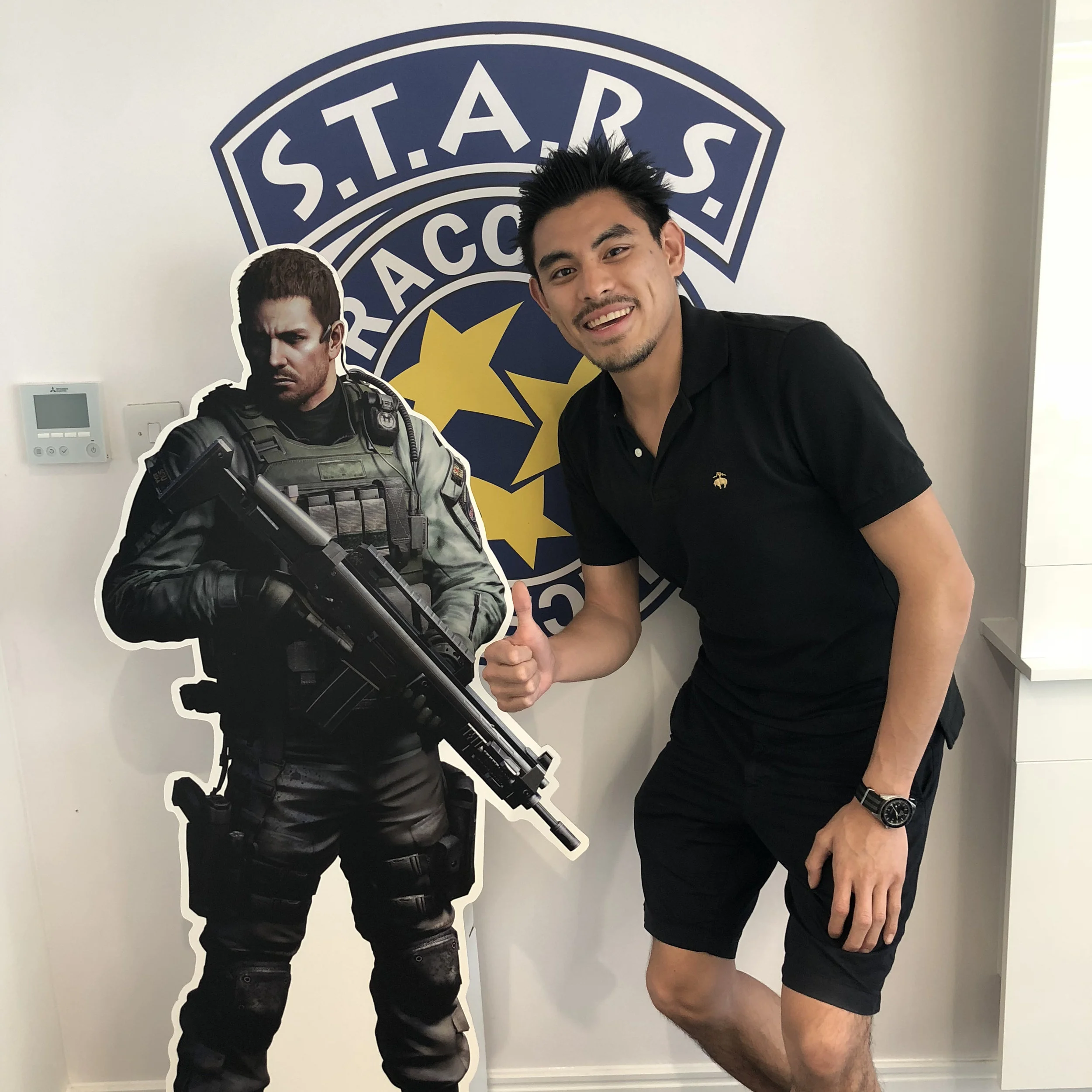Part 2: [PS Classic] The Origin of the Survival Horror Hit: Resident Evil: Director's Cut
To commemorate the release of the PlayStation Classic, PS.Blog Staff conducted an interview with various game creators for titles included in the PlayStation Classic. Among those games is Resident Evil: Director’s Cut. PS.Blog conducted an interview with original staff member Kazunori Kadoi.
The contents of the Japanese interview are translated into English below. The English translation has been written by Alex Aniel. Please note that this interview is not authorized by either PlayStation or Capcom, and should be used for reference purposes only. The original Japanese webpage can be found here. All images in this translation have been taken from the original PS.Blog.
The Cheesy Lines That Have Stuck With Overseas Players
What is your favorite aspect about the game?
It's been said that Resident Evil is NOT an action game where you just kill enemies; it's actually an adventure game where you search for things. For those reasons, the action can't be too convenient for users, which leads to things like one slash with the knife opening up the character to getting bitten once as well. People tend to like that kind of tempo. I didn't realize that at first; I had actually adjusted the game to allow for players to kill zombies by slashing the knife around, which made people angry. *laughs*
The game became a worldwide hit after launch and remains a big series today. Did you have a feeling this could happen back in the day?
Not at all whatsoever. At that time, there was no such thing as a big hit horror title, and they didn't have a reputation for selling well, either. *laughs* Even the company itself didn't have terribly large expectations for the game, so there was a sense of being able to create something we liked as well. We had no expectation that the game would become as widely accepted by people around the world as it ended up being. Perhaps some people saw a chance for success, but for me personally, I didn't think it would. *laughs*
Nowadays, we can use the internet to find out what users are saying about a game, but back in the day, you'd maybe get feedback about whether a game was good or not after releasing a demo and using a computer to access that sort of information (translator's note: Kadoi is referring to computer communications in the pre-internet age). Otherwise, we had no idea how a game would be received until it actually came out. When the game finally hit, it's not like it knocked it out of the ballpark; it steadily became the talk of the town and before we knew it, it made it to 1 million copies. That was the kind of feeling we had.
How do you feel about its success overseas?
We didn't get real time updates on the game's sales overseas. There was a feeling within the company that the game was doing well overseas, but it's not something we could perceive ourselves. Actually, I only began putting more consideration into the overseas market when I became involved with the development of "Resident Evil 5." Or perhaps after the release of "Resident Evil 4."
With "Resident Evil 2" (remake), the scale of development has become considerably larger, and foreign staff are a regular presence on the development team. We ask them how they felt about the series back in the day, allowing us to understand their viewpoints to a certain extent. They've also praised the enemy designs as being cool. For "Resident Evil: Director's Cut," that would be the Hunter, and for the original "Resident Evil 2," that would be the G-Type, Licker and others. They praised them for being quite innovative back in the day. By the way, I was the one who came up with the idea of the Hunters aiming for the neck. *laughs*
Do you pay attention to the differences between Japanese fans and overseas fans?
The other day, I went to Germany to promote "Resident Evil 2" (remake) at Gamescom. I had an interview with someone, who told me, "How have the cheesy lines and scenes changed?" My understanding is that "cheesy" is an English word that refers to something as being dumb or exaggerated.
We recorded all the lines in "Resident Evil: Director's Cut" and the original "Resident Evil 2" in English, but in those cases, the Japanese dialogue was written first before being translated into English by a Japanese person. The lines can sound quite strange to a native English speaker. The voice actors were asked to sound out the lines in a manner that Japanese people could easily understand, so that seems to be why the lines sound a bit exaggerated, as well.
Overseas users will say, "I get what's being said, but it's pretty strange." I've heard that such strange English can only be made outside of English speaking places, but that it was one specific element of the game people could enjoy. For the remake of "Resident Evil 2," we're making the dialogue so that it sounds natural to native speakers. When I heard that there are people who like and are excited for the new voiceovers, it made me realize once again that Resident Evil is a property that sells all around the world.


![Part 2: [PS Classic] The Origin of the Survival Horror Hit: Resident Evil: Director's Cut](https://images.squarespace-cdn.com/content/v1/574ae5d207eaa010521f1130/1544532383962-QL32UOT8PB6HSLZKU1XM/20181129-psclassic-biohazard-05.jpg)


![Part 3: [PS Classic] The Origin of the Survival Horror Hit: Resident Evil: Director's Cut](https://images.squarespace-cdn.com/content/v1/574ae5d207eaa010521f1130/1544615472258-G7OG6F2G9ZY2LV8DGWY3/20181129-psclassic-biohazard-06.png)
![Part 1: [PS Classic] The Origin of the Survival Horror Hit: Resident Evil: Director's Cut](https://images.squarespace-cdn.com/content/v1/574ae5d207eaa010521f1130/1543894890887-NIB9ZI6N6PVGJF2M1OIO/20181129-psclassic-biohazard-thum.jpg)
![Part 4: [PS Classic] The Origin of the Survival Horror Hit: Resident Evil: Director's Cut](https://images.squarespace-cdn.com/content/v1/574ae5d207eaa010521f1130/1545670393918-YHEP1C7S5LFBGOCFSGKW/20181129-psclassic-biohazard-07.png)